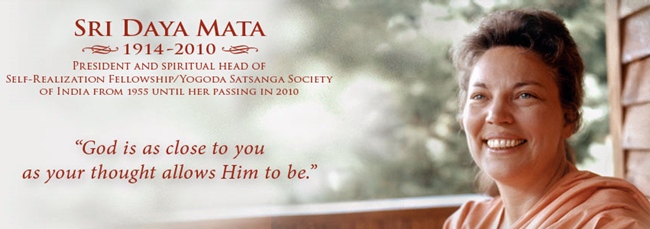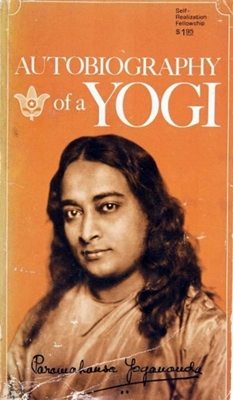What Was Elvis Searching For?
The question the HBO documentary 'The Searcher' avoided..
EIN Spotlight by Paul Simpson
|
What was Elvis searching for?
The question is raised – but never answered – in the title of HBO’s recent absorbing, imperfect documentary.
In this EIN Spotlight respected author Paul Simpson takes a close look at this all important question which, for some reason, was basically ignored in the recent HBO documentary..
|
 |
What was Elvis searching for? The question is raised – but never answered – in the title of HBO’s recent absorbing, imperfect documentary.
It seems clear what the teenage Elvis was searching for – an escape from the oblivion of poverty in the American South. Yet his quest was cultural as well as financial. As Stax songwriter David Porter says in the documentary: “Elvis was a student. Elvis would hang out at the Flamingo Room. When you realise Elvis knew where Beale Street was and what all that meant, you could sense he was different.” That was why, in the early 1950s, he kept driving past Sun Studios, willing Sam Phillips to discover him. When that didn’t do the trick, he paid to cut his own records at Sun’s Memphis Recording Service.
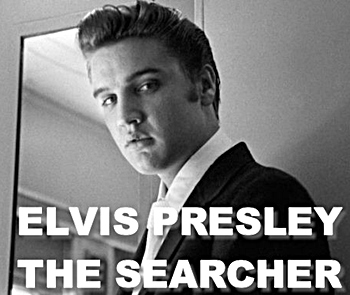 |
By the time he was 21, Elvis was the most famous man in the world – and remained so until the time of his death. (When Ginger Baker, the legendary British rock drummer, began studying the rhythms of Nigerian music in West Africa, he recalled: “You’d be surprised how many of the locals asked me if I’d met Elvis Presley.”) Yet in March 1965, after nine years of unprecedented stardom, stuck in what he later called “that big rut off Hollywood Boulevard”, the increasingly reclusive star was telling James Kingsley, of the Memphis Commercial Appeal: “I withdraw not from my fans, but from myself.”
Within a few days of this interview, driving to Los Angeles, Elvis confided to Larry Geller, his hairdresser and spiritual guru, that he was disappointed that, despite all his study and meditation, he had had “no experience of God”. Soon after this conversation, Elvis stopped the motorhome in the middle of the desert. He had spotted a cloud formation resembling the face of Joseph Stalin, which metamorphosed into the face of Jesus. Running after the clouds, Elvis told Geller: “He smiled at me and every fibre of my being felt it. For the first time in my life God, and Christ, are a living reality.” He then added: “Can you imagine what the fans would think if they could see me like this?”
While it is tempting to seek a pharmaceutical explanation for this vision, Red West relates in Elvis: What Happened? how he and Presley saw a cloud formation resembling the faces of Stalin and Elvis. Insisting he hadn’t taken any amphetamines that day, he swore to God that this definitely happened. Presumably, this is West’s memory of the Geller incident – it seems a bit of a stretch to suggest that Elvis and his entourage repeatedly saw Stalin’s face in a cloud.
Though they may differ on details, Geller and West put the vision in the same context – a conversation in which Elvis expressed the belief that he was put on earth to do something beyond making music and movies. In The Searcher, Priscilla addresses this conviction, saying that he didn’t realise that the music was his message and mission. She may have a point although, given that Elvis had kicked off 1965, and his thirties, recording 38 takes of ‘Shake That Tambourine’, you can understand why he might have been yearning for something more.
 |
Elvis discussed his spiritual quest with co-star Deborah Walley
In March 1965, Elvis visited the Self-Realization Fellowship, an ecumenical movement in which believers of any denomination can seek spiritual solace. He spent a lot of time at the group’s Lake Shrine retreat in Pacific Palisades, west Los Angeles, a kind of Shangri La landscape originally constructed for a silent movie. He sometimes took Deborah Walley, his co-star in Spinout, to Lake Shrine, and spent $21,000 to create his own Meditation Garden at Graceland.
Elvis met spiritual leader Sri Daya Mata at the Fellowship’s Pasadena headquarters, beginning a relationship that would last the rest of his life. He kept her book Only Love and used to refer to her as “ma”. Daya was an interesting woman – born Rachel Faye Wright, a descendant of the Mormons who settled the state of Utah in the 1840s – she had been chosen to lead the fellowship by Paramahansa Yogananda, the Indian holy man who had founded the movement in 1920.
(EIN Note - Please visit the Self-Realization Fellowship Sri Daya Mata website if you want to know more about her)
Presley read Autobiography Of A Yogi, Yogananda’s spiritual memoir. In this respect, he was slightly ahead of the curve – George Harrison wouldn’t start reading it until 1966 when Indian music legend Ravi Shankar gave him a copy.
The Beatles’ pilgrimage to northern India in 1968, to study transcendental meditation under the Maharishi Mahesh Yogi was a global media event. Yet they were, unwittingly, pursuing a trail that Elvis had quietly embarked upon three years before. As the most spiritual Beatle, Harrison would later be a welcome guest backstage at Presley’s concerts. In 2001, the Self-Realization Fellowship held a memorial concert for Harrison at Lake Shrine.
In his search for meaning, Elvis tried everything. With Geller, he studied all the major religions from Judaism to Buddhism and theosophy to numerology (Cheiro’s Book of Numbers was a particular favourite). Inspired by Timothy Leary’s Psychedelic Experience and Aldous Huxley’s The Doors Of Perception (the latter gave Jim Morrison, a fervent admirer of Elvis, the name for his band), he once experimented with LSD.
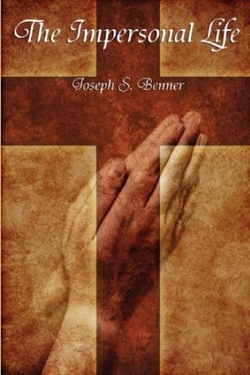 |
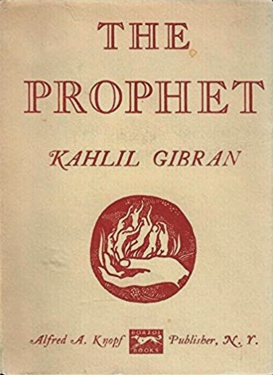 |
He read obsessively, seeking out such books as The Impersonal Life, Joseph Brenner’s guide to self-discovery, The Initiation Of the World, Vera Stanley Alder’s exploration of secret wisdom and Kahil Gibran’s book of fables, The Prophet. In his copy of Gibran’s tome, Elvis jotted down the line: “A singer can sing his songs but he must have an ear to receive the song”.
What exactly was Elvis searching for? As Elaine Dundy notes in Elvis And Gladys, he took up Kriya Yoga in the 1960s because, “as he explained to his teacher: ‘I read that one who practises this technique is gradually no longer subject to the conditions of cause and effect and I wish to be free of them.’ Which is rather like saying: ‘I would like to be free of the laws that govern human nature.’”
The first time he met Geller, on 30 April 1964, when the conversation turned to spiritual matters, Elvis said: “What you’re talking about is what I secretly think about all the time. I’ve always known that there had to be a purpose for my life, I mean, there’s got to be a reason why I was chosen to be Elvis Presley.”
To millions, including Priscilla, he was chosen to be Elvis Presley because his music – and especially his voice – liberated, soothed, inspired and helped people. Yet fame and fortune had not, as he had intended, brought his mother happiness nor had it assuaged the intense loneliness that gnawed at him and his father.
This loneliness was so profound that others were aware of it. His first mentor Sam Phillips certainly was and film director Sidney Lumet was struck by it, telling Dundy that a speech in The Fugitive Kind, his movie of Tennessee Williams’ play Orpheus Descending, about a phoenix that can never rest “evoked such a memory of what I felt of Presley when I watched him work, something other worldly, unhuman (not inhuman), a kind of restless spirit that could never find rest anywhere.”
As the novelist John Updike said, “Celebrity is a mask that eats into the face”. If anything, fame exacerbated Elvis’s loneliness. Parker isolated him from ‘unhealthy’ influences – inspiring figures such as Leiber and Stoller and Chips Moman who might upset the applecart. As Jon Landau, the producer of The Searcher, says: “The Colonel was not interested in Elvis becoming too independent a thinker. He needed Elvis to think that everything good came from the Colonel and anything bad came from imagined enemies. He kept that con job going for much too long.”
Elvis’s unprecedented celebrity left the star questioning whether people liked him for himself, his image or his fame. As he said at the Madison Square Garden press conference in 1972, “The image is one thing and the human being is another. It’s very hard to live up to an image, put it that way.”
 |
It is hard to know how Elvis reconciled his spiritual exploration with his upbringing in the First Assembly of God, the strict Pentecostal church in which he was baptized as a child. His quest didn’t seem to alter his passionate, lifelong devotion to Jesus but may have shaken his faith. Several preachers have said that he told them he had trusted Jesus as his saviour when he was younger but was no longer certain. Yet in December 1976, in an emotional backstage meeting with televangelist Rex Humbard, he rededicated himself to God. The televangelist recalled: “I could see he was reaching back to the past – that spirituality that had been planted years and years before tin his heart.”
Though Elvis could deny reality when it suited – especially when it came to polypharmacy – he was self-aware enough to know that, no matter how many hours he spent devouring his Bible, or standing around the piano singing gospel songs with JD Sumner and the Stamps, he was not living a godly life. As he told First Assembly of God pastor James Hamill in 1958: “I’m the most miserable man you’ve ever seen. I’ve just got all the money I’ll ever need to spend. I’ve got millions of fans. I’ve got friends. But I’m doing what you taught me not to do and not doing the things you taught me to do.”
Yet singing gospel songs on stage and in the studio he often conveyed a sense of personal kinship with Christ – as evidenced in the intensity with which he sang “so help me Jesus, my soul’s in your hands”, on stage in Memphis in March 1974. Presley’s tin-eared anti-biographer Albert Goldman suggested that his gospel singing sounded “histrionic or insincere” which, as music criticism goes, must be up there with the same writer’s dismissal of James Brown as “an African witch doctor”.
Elvis’s search for meaning was not likely to impress Parker, whose concept of divinity began and ended with the mighty dollar. In March 1967, after the star fell over in his bathroom, the Colonel banned Geller from being alone with Elvis, outlawed many of Presley’s religious and philosophical books and lectured the Memphis Mafia: “Some of you think maybe [Elvis] is Jesus Christ, who should wear robes and walk down the street helping people but that’s not he is.” Presley reluctantly acquiesced to Parker’s ultimatum that he end his religious ‘kick’ but not without complaining: “This isn’t a kick, this is my life.”
Two months later, at Priscilla’s request, he burned a pile of the banned books at Graceland to “kiss the past goodbye”. This act of renunciation appeared decisive but how could it be? Elvis was still haunted by the same questions, subjects which, tragically, he felt unable to discuss with either his wife or such old friends as Red West.
The inclusion of Yoga Is As Yoga Does in Easy Come As Easy Go – in which Elvis is professionally obliged to mock his own pursuits – cannot have given him confidence that his quest would be understood by those around him. Although his claim that the song was inserted into the movie at Parker’s behest sounds paranoid, it is hard to figure out why else it might have been written, filmed or recorded.
The intensity of Presley’s spiritual yearning inspired one of the highlights of his career, his performance of If I Can Dream for the 1968 TV special. Earl Brown’s lyrics echo Martin Luther King’s I Have A Dream speech, which Elvis often quoted in private, but also reflected his reaction to Bobby Kennedy’s assassination on 6 June 1968. When the news broke, writer Chris Bearde recalled: “Elvis picked up a guitar and started talking and playing a mile a minute. He said ‘I want you to understand me, because this is a moment in time when we all have to understand each other.’”
 |
Elvis with Larry Geller in 1977, still searching
Though thrilled by the resurrection of his career, Elvis kept searching for spiritual answers. On 12 May 1971, his chauffeur Gerald Peters drove him to the Self-Realization Fellowship where he renewed contact with Sri Daya Mata. He kept up his reading – notably Herman Hesse’s mystic novel of self-discovery Siddhartha, not a book that Parker would have approved of. (In 1967, it had inspired Harrison to write Within You Without You for Sgt. Pepper’s Lonely Hearts Club Band.) As pressing as Elvis’s commitments to studio and stage became, he never forgot Paramahansa Yogananda’s dictum: “Everything else can wait, but our search for God can’t wait”, a favourite saying, coincidentally, of Harrison’s.
 |
That search would inspire two Grammy-award-winning performances in the 1970s: He Touched Me (which, like the eponymous album, remains seriously underrated) and How Great Thou Art, one of the highlights of the Elvis Recorded Live On Stage in Memphis album.
Elvis never found what he was searching for. It may be that, given his remark about being freed from the laws of cause and effect, he was never likely to. Near the end of his tragically short life, he cut a poignant figure, watching the TV cameras monitoring fans outside Graceland as a substitute for human contact.
Ignoring his spiritual quest in The Searcher undermines the documentary – the relevance of the title is never really clear – and gives us an incomplete view of Elvis. The absence inadvertently helps perpetuate the Goldmanesque cliché that Elvis was dumb Southern white trash. He wasn’t. He may have spent too much of the turbulent 1960s making a series of increasingly interchangeable musical comedies but he was, as Priscilla says, “far deeper than that”. He was reading the same books, groping for the same answers and asking the same questions as the younger generation whose heroes he had inspired.
Elvis knew money couldn’t buy love long before the Beatles’ chart-topping single. He had experimented with LSD before John Lennon wrote most of Lucy In The Sky With Diamonds. And, three years before Beatles flew to India, Elvis had asked Sri Daya Mata whether he should give up his career and dedicate himself to the spiritual life. She told him he could do more for the world through his genius as an entertainer.
This exchange, if reported back, would have given Parker an aneurysm. Luckily for us, Elvis took Daya’s advice. Yet the road not taken still haunted him. In the 1970s, when he was upset, he would often head to the piano in Graceland’s racquetball court, to play gospel. As Bono wrote in Rolling Stone: “He was happiest when he was singing his way back to spiritual safety.”
Spotlight written by Paul Simpson
-Copyright EIN February 2019
EIN Website content © Copyright the Elvis Information Network.
Click HERE to comment on this article
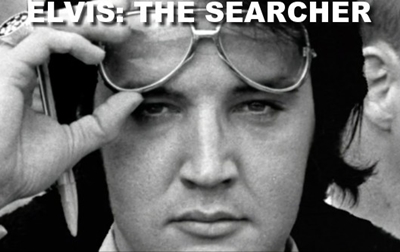 |
Interview with 'Elvis Films FAQ' author Paul Simpson: "Elvis Films FAQ" was reviewed by EIN as one of the best Elvis books published in 2013... "Paul Simpson examines every angle of Elvis’ film career and writes about it in a very engaging and enjoyable style. The real triumph of this book is that it will make you want to watch all of Elvis’ films one more time! Highly recommended."
While Elvis' Hollywood years are full of mystery, and Elvis Films FAQ covers them all! Elvis Films FAQ explains everything you want to know about the whys and wherefores of the singer-actor's bizarre celluloid odyssey; or, as Elvis said, "I saw the movie and I was the hero of the movie."
"Elvis Films FAQ" was without doubt one of the best Elvis books published in 2013 and EIN wanted to know more from its author Paul Simpson.
(Interviews, Source;ElvisInfoNet)
|
 |
'Elvis Films FAQ' Book Review: Elvis' Hollywood years are full of mystery, and supposedly 'Elvis Films FAQ' covers them all! Elvis Films FAQ by author Paul Simpson explores his best and worst moments as an actor, analyses the bizarre autobiographical detail that runs through so many of his films, and reflects on what it must be like to be idolized by millions around the world yet have to make a living singing about dogs, chambers of commerce, and fatally naive shrimps.
After all if Elvis Presley had not wanted to be a movie star, he would never have single-handedly revolutionized popular culture.
Yet this aspect of his phenomenal career has been much maligned and misunderstood – partly because the King himself once referred to his 33 movies as a rut he had got stuck in just off Hollywood Boulevard.
It is a mightly entertaining book - but go here as EIN's Piers Beagley investigates to see whether this new book by author Paul Simpson really answers all the questions you need to know ....
(Book Reviews, Source;ElvisInfoNet)
|
. |
EIN Website content © Copyright the Elvis Information Network.
Elvis Presley, Elvis and Graceland are trademarks of Elvis Presley Enterprises.
The Elvis Information Network has been running since 1986 and is an EPE officially recognised Elvis fan club.
|







